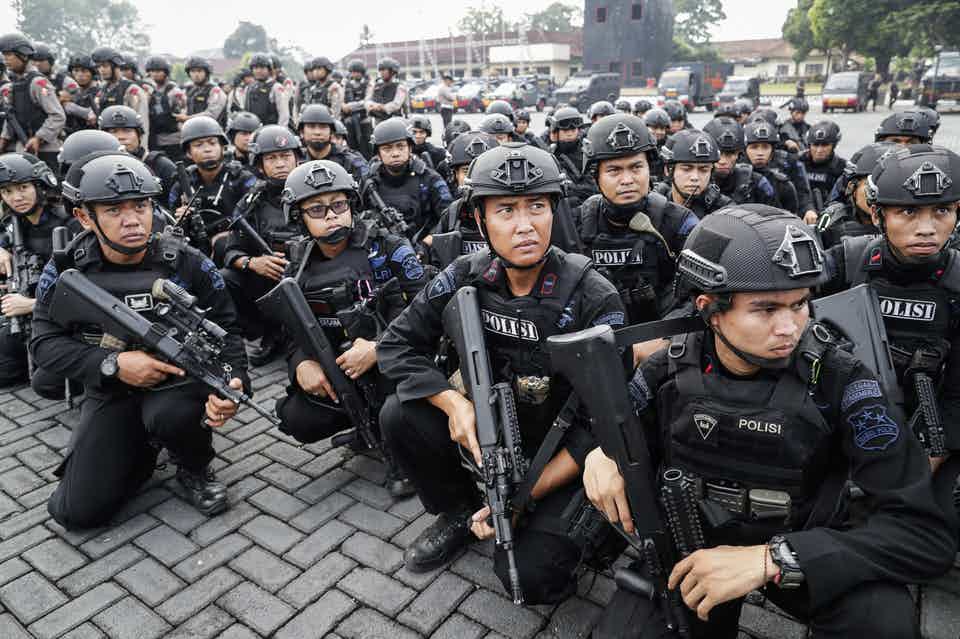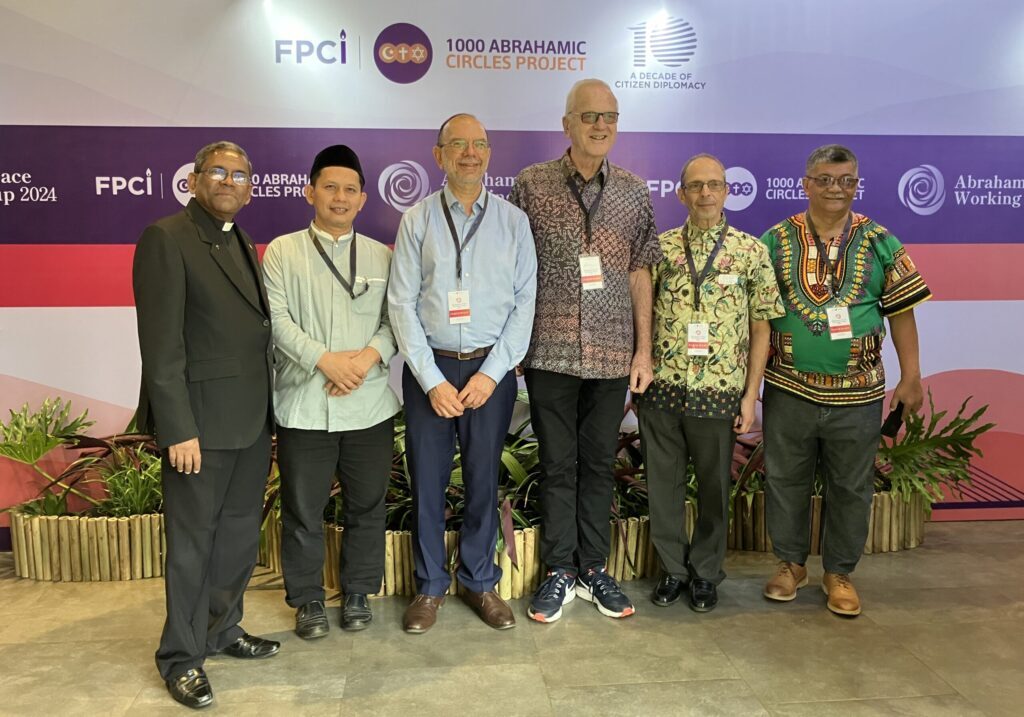Australia/Israel Review
Asia Watch: A waiting game
Sep 17, 2021 | Michael Shannon

While the world absorbs the sudden return of Taliban rule in Afghanistan, its history as a linchpin for international jihadist terrorism has new relevance for countries like Indonesia.
Dozens of Indonesian extremists who later formed the militant backbone of Jemaah Islamiyah (JI) trained with the Afghan mujahideen during the 1980s and 90s, acquiring the skills and commitment that fuelled a spate of terror attacks back home during the 2000s, including the devastating 2002 nightclub bombings in Bali.
The JI operatives who orchestrated the Bali bombings and built the suicide vests and truck bombs were largely trained in Afghanistan. Their introduction of suicide bombing in Indonesia has had such a devastating impact that almost two decades later, Densus 88 (Indonesia’s elite counter-terror agency) created a poster to warn against the continuing legacy of the so-called “Afghan veterans”.
The obvious concern now is that there may be a return to the safe-haven days of 1996-2001, when the Taliban regime allowed al-Qaeda to maintain its base of operations and seed a generation of committed jihadists.
Few doubt that the Taliban’s apparent victory over the United States in Afghanistan will revitalise the morale of militant Islamists. It shapes as a clear propaganda opportunity for Southeast Asian groups, rejoicing in the fact that the Taliban succeeded in outlasting a superpower. After the fall of Kabul, many jihadists were found to be sharing the Taliban’s strategy manual across WhatsApp groups; while others uploaded euphoric posts about the recent events.
However, there is no indication that the Taliban’s victory will release resources that would increase Indonesian terrorist groups’ capacity to conduct jihad in the short term.
It is currently unclear whether the Taliban will allow jihadist organisations to use their territory as a haven to train and regroup. The Taliban’s incentive to support international terrorism is low, especially after they lost power for two decades and saw much of their leadership killed.
US Secretary of State Antony Blinken appears confident the threat is overblown, and that strategic calculations will deter the Taliban. “They know what happened the last time they harboured a terrorist group that attacked the United States,” he said recently. “It’s not in their self-interest to allow a repeat of that.”
In the last two years, more than a dozen Indonesians have already attempted to make hijrah (migrate) to Afghanistan, some with children in tow – in most cases aided and abetted by Indonesian IS operatives in Syria in the waning days of the Caliphate. According to the Jakarta-based Institute for Policy Analysis of Conflict (IPAC) there were 23 pro-IS Indonesians known to be in Afghanistan as of June 2021, 11 of whom were in prison at the time.
Senior Indonesian members of IS have attempted to coordinate operations in Indonesia while the organisation still controlled territory in Syria and Iraq, but the attacks perpetrated in recent years have tended to fall short of expectations – the majority of victims being the attackers themselves. Moreover, several of these attacks were inspired but not instigated by Islamic State.
This period has coincided with a strengthening of counter-terror operations. Bolstered by updated legislation in 2018, which extended powers of investigation and opened new paths for prosecution, Densus 88 has moved decisively against both JI and Jemaah Ansharut Daulah (JAD), Indonesia’s largest pro-Islamic State organisation. Between 2018 and mid-2021, Densus 88 captured some 1200 terrorist suspects. In 2021 alone, it has captured 308 suspects, around 37 percent of them JAD personnel and another 37 percent, JI.
But if the fall of Kabul teaches anything to Indonesian jihadists, it is that a successful strategy is one that has a long time-horizon, rather than rash bouts of attacks. For nearly two decades, the Taliban waited and slowly rebuilt upon the mistakes and miscalculations of their enemies.
After meeting with representatives of the Taliban Political Office in Doha, Qatar, Indonesian Foreign Minister Retno Marsudi posted on Twitter, “I conveyed to the Taliban the importance of: an inclusive government in Afghanistan; respecting women’s rights; and ensuring Afghanistan does not become a breeding ground for terrorist organisation and activities.”
Meanwhile, a spokesman for the National Intelligence Agency (BIN) reported that the agency “has taken anticipatory steps to strengthen early detection and early prevention, especially regarding groups that have an ideological resemblance to the Taliban,” according to Benar News.
Indonesian authorities are also investigating troubling reports that several Indonesian militants were among those released by the Taliban from a prison near Kabul in August.
In the days leading up to the Taliban takeover, Indonesian police caught dozens of suspected members of Jemaah Islamiyah in a nationwide sweep, and on Aug. 20, police announced that JI suspects had been plotting to carry out a terror attack on Aug. 17, Indonesia’s Independence Day.
Tags: Afghanistan/ Pakistan, Indonesia, Taliban






